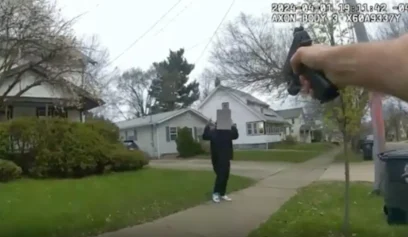As the nation’s job market continues to recover from the large-scale layoff’s inflicted by the spread of COVID-19 and lockdowns that followed, Black workers are being “left behind” their white counterparts.
Data released by the Labor Department this month shows that Black workers are rehired more slowly than whites. Although the overall jobless rate has declined, nearly all of this progress is the result of white workers being hired back.
The overall unemployment rate dropped from 14.7 percent in April to 8.4 percent in early September. During April the Black unemployment rate was 16.7 percent, and it remains at 13 percent as of the September labor report. Meanwhile, the white jobless rate stood at 14.3 percent for whites in April and has now fallen to 7.3 percent.
From April to September, white workers were about twice as likely as Black workers to be hired back. While the white unemployment rate was more than halved, the Black unemployment rate dropped by a margin of just 19 percent.
“As jobs are coming back they’re disproportionately going to white people,” said Heidi Shierholz, director of policy at the progressive Economic Policy Institute. “Black people are getting left behind.”
Fortune found in June that Black workers have been twice as likely to be laid off or furloughed than white workers throughout the pandemic.
The unemployment gap that divides Black and white workers has been documented since 1972, when the Labor Department initially began collecting data on Black unemployment statistics.
Between 1972 and 2019, Black Americans were twice as likley to be unemployed as white workers.
“As long as we’ve been recording this data African Americans are first fired, last hired. In this pandemic everyone got fired but African Americans are still last hired,” economist Gbenga Ajilore told HuffPost in a Sept. 15 article. “It’s one of those things where something gets knocked off its equilibrium and rolled back to its natural state.”
As white workers remain more likely to secure employment, the future remains uncertain for unemployed Black Americans. Expanded unemployment benefits expired in July. Black people have been among the worst impacted by lawmakers’ failure to extend the expanded benefit, and African-Americans were more likely to depend on the benefits while they were provided.
Even during the transition to a post-COVID world, racial disparities may continue to widen as Black women struggle to return to work amid increased child care burdens, and as educational inequities between Black and white children grow while schools and families grapple with distance learning.
Martha Gimbel, a senior manager of economic research at the tech nonprofit Schmidt Futures, made it clear that the disparities in hiring are caused by bias and discrimination, and not by the competency level of Black people.
“I can’t believe I have to say this, but it is not because there is something about Black people that makes them less employable,” Gimbel said to HuffPost. “This isn’t because of skills. It is because of bias in hiring.”


